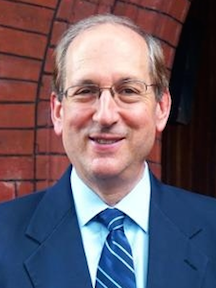This past semester has provided a time for reflection on the controversies that preoccupied many campuses during the 2023-2024 academic year. Last year’s roiled quads and deep divisions tested higher education’s twin commitments to protecting free expression on campus and providing for the safety of all members of the campus community. One lesson from last year seems to have been well learned—the need for clear and transparent rules governing expression. But another, arguably the more important, needs greater attention—the essential need to articulate and implement the university’s central mission to educate and, thus, to engage with different views. The work we do at Phi Beta Kappa lights the path forward for our liberal arts and sciences institutions. In visits to campuses, testimony to the U.S. Congress, lectures, and in opinion pieces advising academic leadership, the Society is modeling how to bridge ideological and political differences among all members of the campus community. I invite you to visit the Free Expression page under “programs” on the ΦBK website where you will find links to this work.
Protest is generally a form of protected expression. However, no one is permitted to threaten another, and a university must respond to violence or threats of violence. Similarly, students do not have a right to disrupt the operations of a university unduly. For example, defacing, occupying, or blocking entry to campus buildings is not protected expression, whereas protests outside a building would be. We learned last spring that this is often not straightforward. Is a demonstration just outside the library inconsistent with the operations of the university? Does an encampment on the central campus quad interfere unduly with the college? This fall, many institutions addressed these issues with rules and guidelines of great specificity, including the consequences of their violation.
But even clear statements of the limits of expression begin at the wrong end of the process. Institutions should begin instead with a clear articulation of their mission—the discovery, creation, and transmission of knowledge. All rules flow from this mission, a mission that is highly relevant to a time of conflict and protest. We must encourage deep listening to each other, robust debate, and learning. Schools do best when they seek dialogue across ideological and political differences between and among the members of the campus community.
Not only is an embrace of free expression central to the creation and discovery of knowledge, it also turns out to be the best way to deal constructively with the challenges of our time. Colleges that successfully and peacefully navigated last spring’s demonstrations typically trace their ability to do so to dialogue and relationships that were designed not to achieve a unanimity of opinion but rather something much more vital—trust among the campus constituencies.
Universities can serve as role models for a “vigorous civility” that is sorely lacking in public life, a commitment to disagree without delegitimizing and to begin difficult conversations with a search for shared values and common ground. These commitments are imperative for a thriving democracy. The linkage between the liberal arts and democracy, central to the founding of Phi Beta Kappa in 1776, demonstrates the continued relevance of our mission on our campuses, in our communities, and across the nation. Ours is a project that has never been more relevant or more essential.
Frederick M. Lawrence
Secretary and CEO
This fall, Secretary Lawrence lectured on free expression on campus at Brown University, the National Center for Conflict Resolution, the Carnegie Endowment for Peace, and the Dutch Embassy in Washington, D.C. He has spoken on this topic on PBS NewsHour, CNN, CBC, and the American Council on Education’s dotEdu podcast, and he will be delivering upcoming addresses at the Hertie School in Berlin and Universitá Cá Foscari Venezia in Venice. In addition to his role at the Society, Secretary Lawrence is a distinguished lecturer at the Georgetown Law Center, where he teaches “Free Speech on Campus” and “Higher Education and the Law.” He is the author of numerous articles on the topics of free expression, free inquiry, and academic freedom, and he is a co-author of the forthcoming new edition of Higher Education and the Law, the leading casebook in the field.




